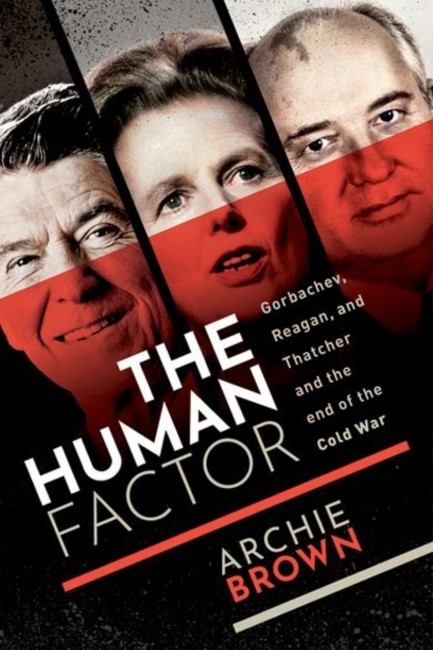THE HUMAN FACTOR : GORBACHEV, REAGAN, AND THATCHER AND THE END OF THE COLD WAR
Εκδότης Oxford University Press , ISBN 9780192856531
How the Cold War ended - and the people who made it happenIn this penetrating analysis of the role of political leadership in the Cold War's ending, Archie Brown shows why the popular view that Western economic and military strength left the Soviet Union with no alternative but to admit defeat is wrong. To understand the significance of the parts played by Mikhail Gorbachev, Ronald Reagan and Margaret Thatcher in East-West relations in the second half of the 1980s, Brown addresses several specific questions: What were the values and assumptions ofthese leaders, and how did their perceptions evolve? What were the major influences on them? To what extent were they reflecting the views of their own political establishment or challenging them? How important for ending the East-West standoff were their interrelations? Would any of the realisticallyalternative leaders of their countries at that time have pursued approximately the same policies? The Cold War got colder in the early 1980s and the relationship between the two military superpowers, the USA and the Soviet Union, each of whom had the capacity to annihilate the other, was tense. By the end of the decade, East-West relations had been utterly transformed, with most of the dividing lines -including the division of Europe- removed.
Περίληψη
How the Cold War ended - and the people who made it happenIn this penetrating analysis of the role of political leadership in the Cold War's ending, Archie Brown shows why the popular view that Western economic and military strength left the Soviet Union with no alternative but to admit defeat is wrong. To understand the significance of the parts played by Mikhail Gorbachev, Ronald Reagan and Margaret Thatcher in East-West relations in the second half of the 1980s, Brown addresses several specific questions: What were the values and assumptions ofthese leaders, and how did their perceptions evolve? What were the major influences on them? To what extent were they reflecting the views of their own political establishment or challenging them? How important for ending the East-West standoff were their interrelations? Would any of the realisticallyalternative leaders of their countries at that time have pursued approximately the same policies? The Cold War got colder in the early 1980s and the relationship between the two military superpowers, the USA and the Soviet Union, each of whom had the capacity to annihilate the other, was tense. By the end of the decade, East-West relations had been utterly transformed, with most of the dividing lines -including the division of Europe- removed.
Πληροφορίες προϊόντος
- Συγγραφέας Brown, Archie
- Eκδότης Oxford University Press
- ISBN 9780192856531
- Κωδικός Ευριπίδη 040100078434
- Έτος κυκλοφορίας 2022
- Σελίδες 528
- Διαστάσεις
- Βάρος 350 gr
